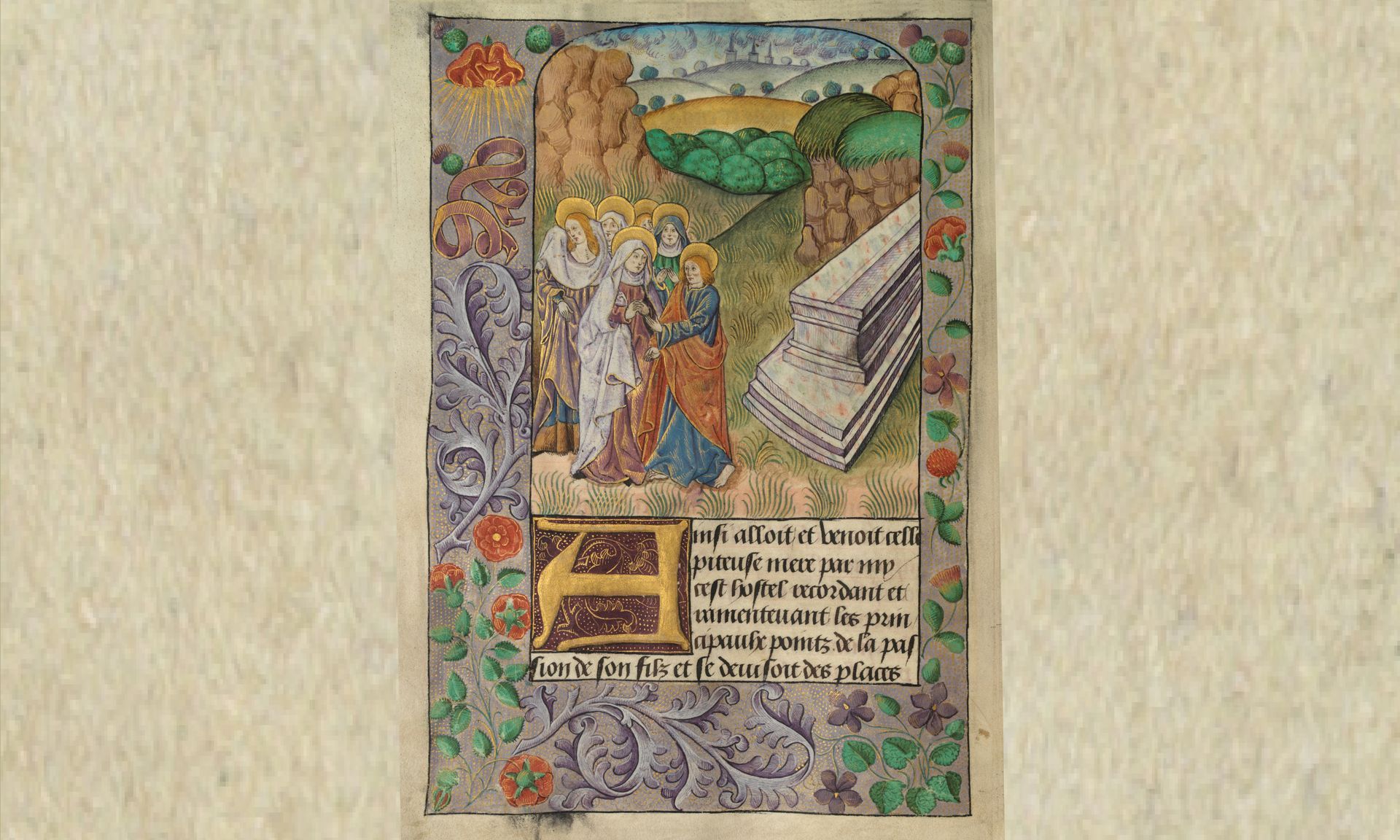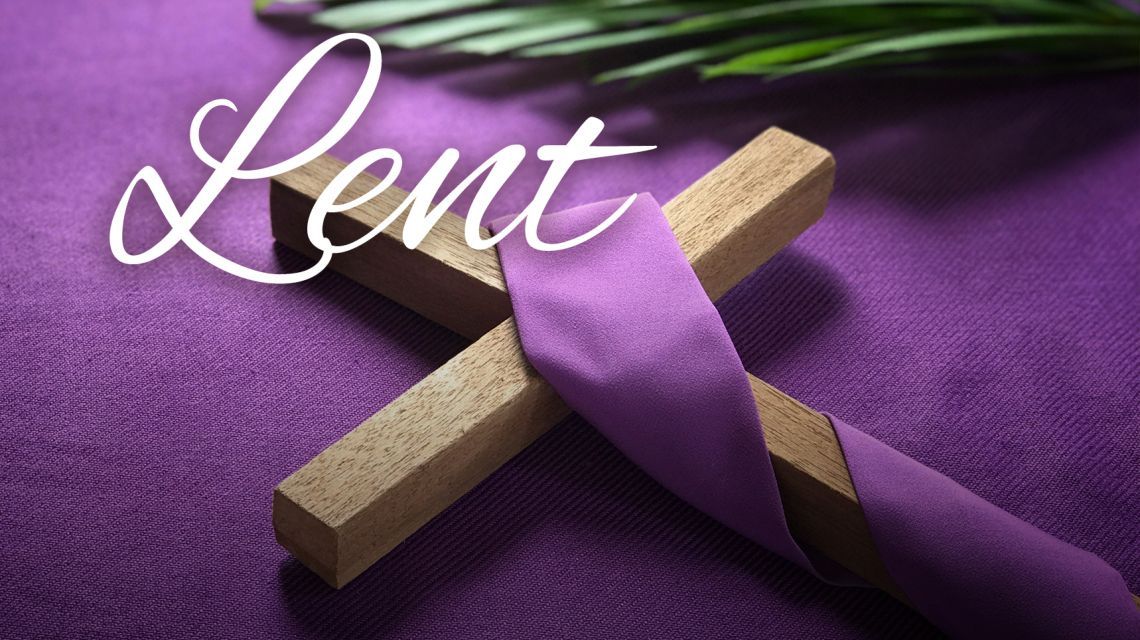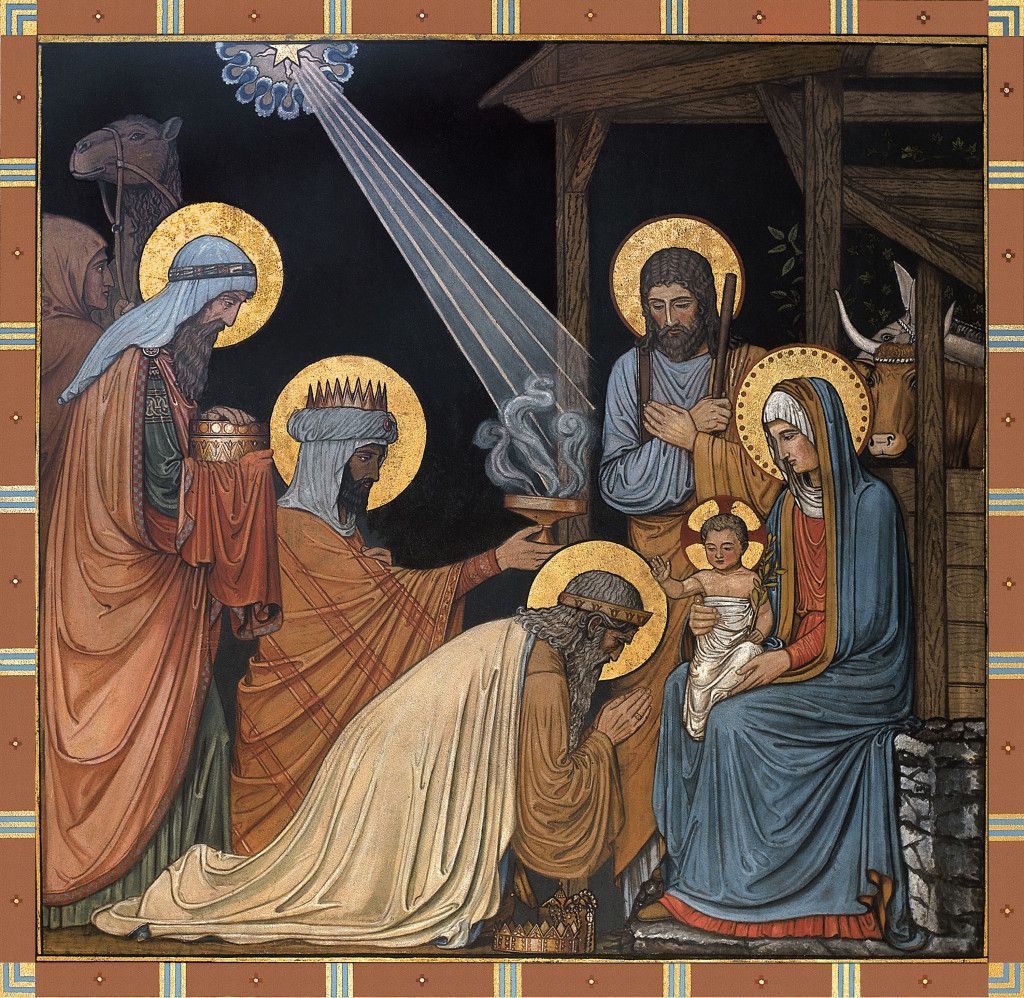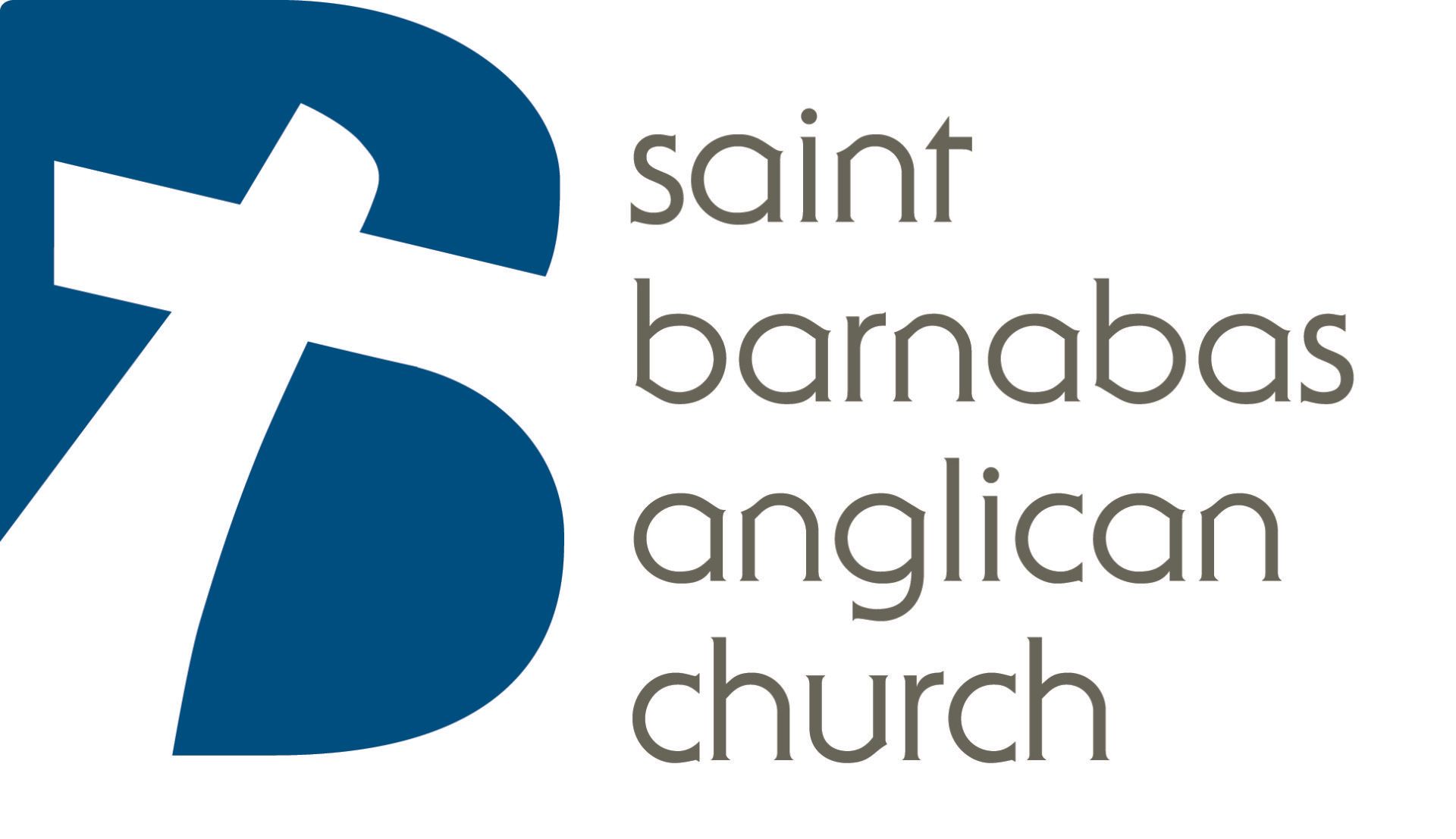Rector's Reflections
Rector's Reflections
By Fr. Andrew
•
18 Apr, 2024
Good Shepherd Sunday is annually celebrated on the fourth Sunday of Easter (this Sunday). Every year we read a portion of the tenth chapter of John’s gospel as we reflect upon this image Jesus uses to reveal the character and nature of God in a series of “I AM” statements. We do well to see these that “I AM” statements refer back to the first revelation of God’s name to His people, Israel, as He spoke to Moses. In these statements and this passage we are reminded of a fundamental truth of Christianity, that we can have relationship with God through Jesus Christ. From the moment God reveals His name to His people until it is revealed fully in Jesus, we see the heart of God who not only made us in His image, but also desires to have relationship with us. We encounter this reality through an image that is profoundly lost upon us in the West. The closest we come to grasping the role of a shepherd is through the affection we have for pets. Yet, it only scratches the surface of a way of life for the shepherd. A shepherd’s life requires total dedication, time, attention, selflessness, and care to allow the creatures they attend to thrive. As I reflect upon this image for this Sunday, I also feel as though we not only miss out upon the imagery but the very nature of relationship itself that it reveals. After all, most of you will read this on social media, our website, or by way of email. We are far less relational as we are buried in the very technology and conveniences that are intended to connect us. Ironically, they seem to do quite the opposite. Perhaps the yearly reminder of Good Shepherd Sunday is more needed now than ever. In it we are reminded once again through the teachings of Jesus that apart from Him we cannot truly have relationship with God, or meaningful and rightly ordered relationships with anyone else. As we gather Sunday we are reminded of this truth as we worship side by side and also commune with Him. The very purpose of the Church is revealed therein as well! Come Sunday as we press into the Truth revealed in Jesus Christ in the pages of Scripture together. In so doing we connect in meaningful relationship with the living God and set aside the distractions of life to connect with one another. Don’t miss out on this opportunity that is ever before us, yet one that is perhaps more needed now than ever before. Blessings, Andrew Image: “Icon of Good Shepherd” Anonymous Unknown author, Public domain, via Wikimedia Commons

By Fr. Andrew
•
03 Apr, 2024
As we continue in the Easter season, we are called to reflect upon what Jesus' resurrection means for both us and the world. His bursting forth from the grave conquered sin and death. And that changes everything. His victory is our victory, as sin and death loses its power over us as well as all over all of creation. His victory in our lives, however is only seen when we allow Jesus to reign in our desires, passions, and even our goals. He sets our affections right in aligning them with God's will. He gives us purpose, even amidst the seemingly mundane. He gives us the victory over our sinful nature when we invite Him into our day and lives. Daily we have victory in Jesus, if we would but ask Him for it. As we rise, we can simply dedicate ourselves anew to Him while inviting Him to give us eyes to see and ears to hear Him that day. If we find times to keep our hearts attuned to Him, He will meet us in the day. This can be done in simple actions throughout our day, such as listening to Christian music on the commute, or spending time reading God's Word over lunch. As we abide in Him, He abides in us. And we begin to discover His promptings through the recalling of a Bible verse when we see someone in need, such as 'whatever you do to the least of these, you do unto me,' or in song, or prayer. In learning to listen, spend time with, and surrender our days to Him, we allow the victory of Easter to spread throughout the world. We are His Church, His Body, so Jesus' victory over sin and death is both experienced and seen through us. May we with joy live out the proclamation we say weekly on Sundays during Easter through our lives, 'The Lord is Risen indeed. Alleluia!' Blessings, Andrew

By Fr. Andrew
•
30 Mar, 2024
After all of the events of Maundy Thursday and Good Friday, there is a silence and solemnity to Holy Saturday. It often is seen as a day of preparation for Easter, and rightfully so. However, such silence should not be mistaken for inaction. In an ancient homily below, by an unknown author from the 4th Century, the events of the day are so poetically captured. I hope you find it edifying as you reflect upon Jesus’ sacrifice for our sake in these days leading up to Easter. Blessings, Andrew Something strange is happening – there is a great silence on earth today, a great silence and stillness. The whole earth keeps silence because the King is asleep. The earth trembled and is still because God has fallen asleep in the flesh and he has raised up all who have slept ever since the world began. God has died in the flesh and hell trembles with fear. He has gone to search for our first parent, as for a lost sheep. Greatly desiring to visit those who live in darkness and in the shadow of death, he has gone to free from sorrow the captives Adam and Eve, he who is both God and the son of Eve. The Lord approached them bearing the cross, the weapon that had won him the victory. At the sight of him Adam, the first man he had created, struck his breast in terror and cried out to everyone: “My Lord be with you all”. Christ answered him: “And with your spirit”. He took him by the hand and raised him up, saying: “Awake, O sleeper, and rise from the dead, and Christ will give you light”. I am your God, who for your sake have become your son. Out of love for you and for your descendants I now by my own authority command all who are held in bondage to come forth, all who are in darkness to be enlightened, all who are sleeping to arise. I order you, O sleeper, to awake. I did not create you to be held a prisoner in hell. Rise from the dead, for I am the life of the dead. Rise up, work of my hands, you who were created in my image. Rise, let us leave this place, for you are in me and I am in you; together we form only one person and we cannot be separated. For your sake I, your God, became your son; I, the Lord, took the form of a slave; I, whose home is above the heavens, descended to the earth and beneath the earth. For your sake, for the sake of man, I became like a man without help, free among the dead. For the sake of you, who left a garden, I was betrayed to the Jews in a garden, and I was crucified in a garden. See on my face the spittle I received in order to restore to you the life I once breathed into you. See there the marks of the blows I received in order to refashion your warped nature in my image. On my back see the marks of the scourging I endured to remove the burden of sin that weighs upon your back. See my hands, nailed firmly to a tree, for you who once wickedly stretched out your hand to a tree. I slept on the cross and a sword pierced my side for you who slept in paradise and brought forth Eve from your side. My side has healed the pain in yours. My sleep will rouse you from your sleep in hell. The sword that pierced me has sheathed the sword that was turned against you. Rise, let us leave this place. The enemy led you out of the earthly paradise. I will not restore you to that paradise, but I will enthrone you in heaven. I forbade you the tree that was only a symbol of life, but see, I who am life itself am now one with you. I appointed cherubim to guard you as slaves are guarded, but now I make them worship you as God. The throne formed by cherubim awaits you, its bearers swift and eager. The bridal chamber is adorned, the banquet is ready, the eternal dwelling places are prepared, the treasure houses of all good things lie open. The kingdom of heaven has been prepared for you from all eternity. ~ Author Unknown (Image: National Library of Wales , CC0 , via Wikimedia Commons)

By Fr. Andrew
•
20 Mar, 2024
And he came to the disciples and found them sleeping. And he said to Peter, “So, could you not watch with me one hour? Matthew 26:40 On Sunday we embark upon the weeklong journey to Easter morning. There are several opportunities for worship in the subsequent days that are intended to assist us in reflecting upon Jesus’ sacrifice and death for our sake. Each service is unique, designed to make us active participants in the moments leading up the Resurrection. It all begins on Palm Sunday, foreshadowing the week to follow. The service that morning is actually two services combined into one. The first begins, weather permitting, in the driveway of our building with the blessing of the palms and a procession into the sanctuary. In doing so, we seek to recreate the joyful reception of Jesus into Jerusalem, as he was hailed as King by all who gathered along the main road to welcome him with palm branches and coats laid before his feet. Yet, things take a turn as we enter the church and our readings point to the cross as shouts of “Hosanna” quickly change to “Crucify Him!” The service ends on a more solemn note as we leave reflecting upon the week ahead where Jesus would be betrayed, mocked, spit upon, beaten, killed, and buried. The scene is then set for Maundy Thursday, where we remember Jesus’s institution of the Eucharist and giving of a new commandment to love one another. Everyone is invited to have his or her feet washed to remember the call to put our love of others into action through serving others. After Communion, we recall Jesus’ betrayal and affliction in the Garden of Gethsemane in the hours before he is drug before the religious leaders and put on trial. We too, remove the Body of Jesus in the Sacrament from the church to our ‘garden’ where it will remain until Good Friday. The service abruptly ends in silence after all is stripped away in the sanctuary, leaving only a bare altar for the days to follow. All are then invited to ‘watch with Jesus’ for an hour in prayer in our ‘garden’ as we recall His agony and obedience in the hours leading up to the events of the day to follow. Good Friday places the centrality of the crucifixion in front of us. The reading of the account of Jesus’ death, entrance of the cross for our veneration and contemplation, and reception of Communion, keep the gravity of the day before us. Jesus words, ‘My God, my God, why have you forsaken me?’ are left ringing in our ears when we leave reflecting upon the greatest moment in human history: the moment wherein Jesus bears the weight of sin for all humanity so that we may be reconciled with God. On Saturday we gather to embrace the emptiness and silence as the Author of our salvation harrows hell (see Eph. 4:9 ; 1 Peter 3:19). It is a day of preparation as we recall the stillness and anticipation of what will happen next. In perhaps the shortest service of the year, we gather to enter into this moment together as we prepare our hearts for the joy of the morrow. When we arrive on Sunday to an ornate church filled with flowers and beautiful hymns we more fully appreciate the day having gone through the rollercoaster of emotions in the days prior. The baptisms of the morning take rich meaning as we reflect upon their meaning in light of what Jesus did for each of us. Make this week a priority. Block off the service times as appointments with the Lord on your calendar. We are invited in these days to take the time, typically only an hour or so each day, to give thanks, recall, and worship the Author of our salvation. Jesus’ words then to the disciples are no less convicting to us now, And he came to the disciples and found them sleeping. And he said to Peter, “So, could you not watch with me one hour? Matthew 26:40. May we not be found slumbering amidst the business and busyness of our lives this week to miss the greatest week in salvation history, which opens unto us the gates of heaven. Blessings, Andrew

By Fr. Andrew
•
13 Mar, 2024
The past few weeks we have explored two of the three pillars of Lent; fasting and almsgiving. Both are intended to create space in our lives so that we can spend time with the Lord. The chief way we do so is through prayer. Communication is the key to strengthening and maintaining any relationship, and the same is true of our relationship with the Lord. Cultivating and creating times to be with the Lord is vital to our spiritual growth. Prayer is a two way street, one in which we both converse with God and He converses with us. As one of the Church Fathers, Isidore, wisely noted, “Anyone who wants to be always united to God must pray often and read the Bible often. For in prayer it is we who are speaking to God, but in the readings it is God speaking to us.” As simple as that reminder may seem, it can be a challenge to put into practice. Yet, such moments are vital to keep us grounded in the trials and chances of life, to keep perspective, and to allow us to further trust Him. Through prayer and times of listening by spending time God’s Word we train ourselves to go to God with all things in our lives from the hurts, difficulties, decisions, and thanksgivings. Each afford us an opportunity to dialogue with God about what is going on in our lives and seek guidance from Him. We seek counsel from so many people in this life. What if we went to Him as frequently as we did a friend, parent, sibling or spouse with what was happening in our lives? How might it change us if we sought out our Author and Creator first and foremost above all others? We would discover a greater peace and clarity through moments in His presence. Such a discovery isn’t necessarily directly correlated to the amount of time spent with Him as Osawald Chambers observed, “It is not the thing on which we spend most time that molds us, but the thing that exerts the greatest power. Five minutes with God and His word is worth more than all the rest of the day.” Certainly this is a great place to being. Learning to cultivate times and keep and ongoing dialogue with the Lord throughout the day transforms us and aligns our lives with His will for us. The challenge for us in this season is creating space in our lives to find this to be true. The even greater challenge is allowing ourselves to continue to create such moments beyond this season to carry on daily. May God continue to assist us with His grace as we seek Him first, bring things before Him and allow Him to speak to us through the pages of His Word. Blessings, Andrew (Image: Theindigochxld , CC BY-SA 4.0 , via Wikimedia Commons)

By Fr. Andrew
•
06 Mar, 2024
Almsgiving Last week we explored fasting as a practice to draw us closer to the Lord during this season of Lent. Closely related to it is the practice of almsgiving, which is another pillar of this season to assist us in our growth, return, and refocus in these forty days. Almsgiving and fasting are linked, because in generations past when one gave up meat on Wednesday and Friday, or fasted from a meal entirely, the money that would have been spent was set aside for the work of ministry. It was another way to order one’s appetites by returning more of oneself to the Lord. Therein lies the purpose for such a practice, namely to bring our lives more fully under God’s reign and rule by placing Him first. Almsgiving may also serve as a valuable discovery tool in our lives and routines as well. For example, giving up a cup of Starbucks coffee on the way to work each day can easily amount to $150 a month in savings, and forgoing lunch out each day can amount to even more. At times we may not realize how much small items add up, and how much of an impact small sacrifices could make in the advancement of the Gospel. Choosing to set aside the money we would have spent on something during this season can have a bigger impact than you may imagine. Returning to our Starbucks example, the amount of $150 spent for coffee would provide an entire month’s salary for a pastor in Africa or 1/5 of the annual support needed to invest in a life at La Gran Familia orphanage in Mexico. It may also be the amount needed in the life of someone in our community who is out of work to keep them from eviction or help them keep the lights on another month. The mite boxes you have found throughout the church serve as a place to gather these funds, which we will disperse during Easter.. Almsgiving is yet another practice to help us refocus upon what matters most as we give beyond our normal offering to the Lord. It also provides a way to simplify and to bring to our awareness where our resources go and perhaps the excess we have. May God use this season to draw our hearts closer to His in this area of our lives. Blessings, Andrew

By Fr. Andrew
•
21 Feb, 2024
Fasting During Lent Lent is upon us. A season of spiritual growth that is set aside for refocus, return to the Lord, and reprioritizing in the days leading up to Easter. Traditionally, this season has been marked by three practices to assist toward that end: fasting, almsgiving, and prayer. Over the next few weeks we will explore each of these pillars and practical ways to implement them as tools to further our growth in the likeness of Jesus during this season. Historically, during Lent, fasting is encouraged on Fridays. Many wonder why this is a custom in the life of the Church. There are many reasons, but the first may be to remind us of the day. It is akin to tying a string around your finger, or in this day and age, sending yourself a reminder on your phone or computer. It marks the day as different as we set aside portions of the day to seek the Lord. For this reason fasting is often encouraged when we need the Lord’s guidance on a matter or issue in life. We see our Lord point to this in Scripture (i.e. Acts 13:2 and the choosing of the disciple to replace Judas). Beyond merely marking the day, fasting also serves as an offering to God. We give up the time we would have spent over a meal in prayer. Even in our fast paced society today, we often have at least an hour for lunch. And if we turned this into an hour of prayer or studying God’s Holy Word, we present our time and ourselves as an offering back to Him. In times of trial or great decision we ‘carve out’ time to listen and seek the Lord for guidance, and on Fridays in Lent it allows us time to reflect upon our Lord’s sacrifice on our behalf on that day. Lastly, Fr. Homer Rogers, a priest from this area of a generation past, once said that fasting helps “to discipline and train the bodily appetites in obedience to the higher faculties of the intellect and will.” Put another way, fasting helps develop in us a discipline to seek God above all else. It places us in a position of both humility and availability as we seek His will. During Lent abstinence from meat on Wednesday and Friday is also done for many of the same reasons. The goal of course was not so focused upon the meat, as what the meat represents: extravagance. We don’t think of meat as extravagant, but it is certainly more rare than other food items (and a luxury in other parts of the world, or to the poor in our own communities). The goal behind this custom was to live more simply during this season. As we take times to refocus upon the Lord through both fasting and abstinence this season, I pray that we draw nearer to Him through these practices as we learn to seek Him above all else. Blessings, Andrew (Image by PicsbyFran on Pixabay )

By Fr. Andrew
•
14 Feb, 2024
Observing a Holy Lent Lent is a word which we use to mark the forty days that lead up to Easter. The word quite literally means, the spring season. But as in many points throughout history, Christians brilliantly captured the words and customs of surrounding pagan cultures to use them for evangelization. Subsequently, the Early Church used this season to prepare new converts for baptisms on Easter. For these catechumens, or individuals receiving instruction on the Christian faith, fasting, almsgiving, prayer, and repenting from worldly and pagan practices were as much a part of the preparation as the instruction itself. Lent was also a time when those who were excommunicated, removed from receiving Communion, would do penance. As they were removed from the life of the Church, during these forty days, it allowed a time for them to redirect their hearts and actions back to God. At Easter, they would be restored into the Faith Community through receiving Communion once more. For those who did not fall into either category, it remained a season for both refocus and return. The intentional time allows one to examine the Faith afresh, and in doing so, repent and turn away from sinful desires and behaviors in one's life. In doing so, one draws nearer to God. The marks of fasting, almsgiving and prayer have always stood as a means to assist toward that end. For instance, the old practice of abstaining from meat on Wednesdays and Fridays dates back to a time when the wealthy had multi-course meals. Fish would be one of the earliest courses, before entrees of meat, which were more expensive and rare. The Church encouraged those who were of such means to abstain from such lavishness in order to both save money to give to the poor, and also to create more time for prayer and contemplation. As we examine our lives, we too are called to fast from distractions and indulgences and to take on practices that foster more time with the Lord. If we give up alcohol, sweets, or soda, we can spend that time, even if only 5 minutes, in prayer or the study of God's Word when the urge for such treats arise. Also, the money that would have been spent upon such items can be saved during these forty days and given to the Church for God’s work in the world through our own almsgiving. Although the self-denial may only last forty days, the practices and disciplines we take on for our spiritual growth should last a lifetime! As we were reminded on Ash Wednesday, we are invited to observe a Holy Lent. Determine to do so through fasting, almsgiving and prayer. In doing so, prepare to more fully receive our Lord in the yearly remembrance of His death and resurrection in the weeks ahead. May our desire to keep a Holy Lent further us in this earthly pilgrimage to grow to look more like Jesus, by the Holy Spirit’s work in us, until we see Him face to face. Blessings, Andrew

By Fr. Andrew
•
08 Feb, 2024
Ash Wednesday is less than a week away (February 14). Its arrival marks the beginning of Lent and a new season in the Church Year. On that day we pause and attend a rather unique service as we embark upon this season together. But, what exactly is the history and significance of the service? What is the purpose of ashes? And what is the scriptural basis for all of these things? The earliest liturgical record of an Ash Wednesday service dates back to around 960 A.D., finding its roots in the Romano-Germanic pontifical (a collection of liturgical services dated to the 10 th century and later widely distributed throughout the Ottoman Empire and Italy). Yet, the historical use of ashes is found much earlier within the Old Testament. Often when the Israelites turned back from their sins to God, they did so in sackcloth and ashes (see Isaiah 58:5; Jeremiah 6:26; Daniel 9:3; Jonah 3:6; and Jesus references to it in Matt 11:21 and Luke 10:13). The act was one of humility, in which an individual would turn away from the things of the world through fasting in order to recommit oneself to the Lord. Doing so also served to reminded them of their humanity. In spite of their pride and false sense of self sufficiency, they were confronted with the reality that they are created beings whose days are fleeting (Genesis 3:19; Psalm 39:5,11; 62:9; 78:33; 94:11; 144:4). Therefore, as we begin Lent, we too, begin in like manner. As we will hear in the service that evening, we are invited, in the name of the Church, to the observance of a holy Lent: by self-examination and repentance; by prayer, fasting, and alms-giving; and by reading and meditating on God’s holy Word. We are called to draw back to our first love. Traditionally, the ashes used are the burned remains of the palms from the past year’s Palm Sunday. These are sprinkled with holy water, and sometimes incensed, as a series of four ancient prayers are prayed over them. The custom serves to remind us of our fickle nature. We, too, cry out to the Lord with our wants, but quickly turn away from Him when they are not met as we desire! The pillars of Lent are housed in the exhortation that evening to assist us in reorienting our hearts and lives over the following forty days. Interestingly, we find a model for them in the practice of fasting from meat on Wednesdays and Fridays in Lent. Historically, those of means would only eat the first course of a three-course meal, usually a fish dish, as part of their Lenten fast. The money saved in the more meager portions lead to almsgiving. These saved resources would be returned to the Lord to tend to the less fortunate and for the advancement of the Gospel. Finally, the reduced meal preparations and time spend eating allowed for more time with the Lord in prayer, Scripture, and worship. While customs change, the principles do not. Begin searching your heart for what you may fast from this season. Focus upon something that you ‘hunger’ for regularly and whose presence will be missed. When forgone it should serve as a reminder to you and create space in the midst of your day. It could be times on social media, alcohol, shopping, or a TV series. The times opens moments for prayer and time in God’s Word. Likewise, the financial savings may allow you to sow into the advancement of God’s Kingdom. May we all keep a Holy Lent, as we begin to think and prepare toward that end in order to draw nearer to Jesus over the next forty days. (Photo by Ahna Ziegler on Unsplash )

By Fr. Andrew
•
06 Jan, 2024
This week can come as a bit of a let down on the heels of various celebrations over the past several weeks. With the boxing up of decorations, return to school, and resuming routines comes a longing for more celebration as things go back to normal schedules. We certainly see this yearning evidenced in our culture by the emerging Valentine’s Day decorations and candy littering the shelves throughout various stores. Who doesn’t love a reason to celebrate?! The joy of the Christian calendar is that the celebration does not end this week. We merely transition from one celebration to another. As Friday marked the end of Christmas, it signaled the beginning of Epiphany (which lands on Saturday this year). Epiphany, meaning manifestation or revealing, celebrates the arrival of the wise men from the East to see the newborn King. This moment fulfilled the prophecies of old which foretold of a time when the nations would be gathered back to God through Israel’s relationship with Him (see Isaiah 42:6). Jesus, representative of Israel and in perfect relationship with God, is made known to the world as the star shines as a spotlight upon Him. We rejoice in this moment, because it is good news for all. Good news that the way to God is opened to all through Jesus Christ, as He shines the way for each of us to come into relationship with Him. In every age the invitation stands to imitate the example of the wise men and come to Jesus. One eloquent preacher and bishop in our tradition by the name of Lancelot Andrews noted, “They came a long journey, and they came an uneasy journey; they came a dangerous journey and they came now, at the worst season of the year. They stayed not their coming till the opening of the year, till they might have better weather and way, and have longer days and so more seasonable and fit to travel in. So desirous were they to come with the first, and to be there as soon as they possibly might; broke through all these difficulties, and behold, come they did. And we, what excuse shall we have if we come not? If so short and easy a way we come not, as from our chambers hither? And these wise men were never a whit less wise for so coming; nay, to come to Christ is one of the wisest parts that ever these wise men did. And if they and we be wise in one Spirit, we will follow the same star, tread the same way, and so come at last wither they are happily gone before us.” Many cultures continue the festivities with a King Cake, parades, and other customs to recall this momentous occasion. As we live under the reality of the Resurrection, perhaps you may embrace or start such a custom in your home. You could make crowns to wear, have a special dinner, or pick up King Cake as a way to remember and celebrate the greatest moment in human history. As is also customary in these days, perhaps you’d like to have your home blessed. May we celebrate this season to help us reflect, return, and ever hold fast to the Good News manifest to the world in Jesus Christ our Lord. Blessings, Andrew
BROWSE OUR SITE
Content, including images, displayed on this website is protected by copyright laws. Downloading, republication, retransmission or reproduction of content on this website is strictly prohibited. Terms of Use
| Privacy Policy






